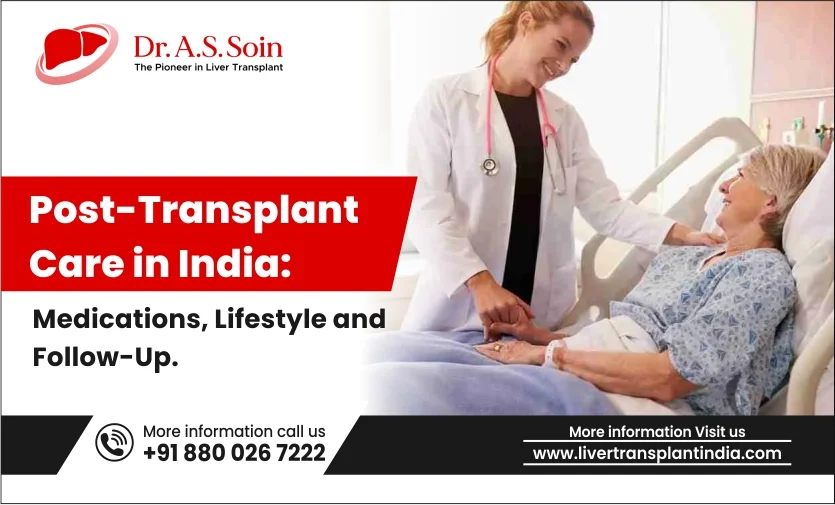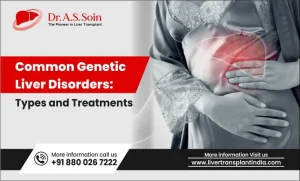Liver transplant surgery is a life-saving procedure, but its success depends significantly on comprehensive post-transplant care. In India, this involves crucial adjustments in lifestyle to support the new liver, regular follow-up appointments to monitor health, and diligent adherence to medications to prevent organ rejection.
Look no further than Liver Transplant India for expert guidance on post-liver transplant care and optimal therapy under the esteemed leadership of Dr. Arvinder Singh Soin at Medanta Liver Institute. Patients and their families can expect exceptional treatment and holistic support throughout their medical journey, ensuring a successful recovery.
Table of Contents
ToggleHospital Recovery
Following a liver transplant, initial recovery in the Surgical Intensive Care Unit (SICU) is critical to manage any immediate issues like bleeding or infections. Rigorous monitoring of liver function through regular blood tests is conducted during this phase.
- Day 1-2: Close monitoring in the SICU.
- Day 3-4: Gradual re-introduction to normal diet and assisted movement through physical therapy.
Post-SICU Care
Once stabilized, patients transition to a general ward for ongoing monitoring of liver function and early detection of rejection signs. Pain management, dietary adjustments, and physical activity are integral parts of the healing process, with healthcare teams emphasizing the importance of compliance and early issue recognition.
Discharge Planning
Upon discharge, patients receive comprehensive instructions covering prescribed medications, dietary restrictions, and scheduled follow-up appointments. Education on recognizing early signs of complications and maintaining infection control practices at home ensures a smooth transition from hospital to home care.
Post-Transplant Medications
The effectiveness of a liver transplant hinges on meticulous adherence to post-transplant medications. These include immunosuppressants to prevent rejection and medications to manage side effects and pre-existing conditions.
- Immunosuppressants: Essential for preventing rejection, such as Tacrolimus and Cyclosporine.
- Supportive Medications: Antibiotics, antifungals, antacids, and antihypertensives tailored to individual needs.
- Monitoring and Compliance: Strict adherence to dosing schedules and regular blood tests ensure optimal medication levels, minimizing side effects while guarding against rejection.
Infection Prevention Strategies
Maintaining a clean and hygienic environment at home is crucial post-transplant to prevent infections. Patients are advised on hygiene practices, avoiding crowded places, and using protective measures like face masks when necessary.
Wound Care and Personal Hygiene
Good hygiene practices, including regular handwashing and wound care, are essential to prevent infections. Special attention is given to wound care protocols until complete healing, ensuring minimal risk of complications.
Diet and Nutrition
A balanced diet rich in proteins, fruits, and vegetables supports liver function and overall health post-transplant. Patients are educated on foods to avoid and encouraged to stay hydrated to aid recovery.
Post-Transplant Exercise
Regular, moderate exercise such as walking and gentle stretching promotes physical recovery and emotional well-being post-transplant. Patients are guided to gradually increase activity levels while avoiding strenuous activities to prevent complications.
Tests and Follow-Up Appointments
Regular follow-up visits are crucial for monitoring liver function, adjusting medications, and addressing any emerging issues. The transplant team provides personalized schedules to ensure continued health monitoring and timely intervention when needed.
Medanta Liver Institute
Led by Dr. Arvinder Singh Soin, Medanta Liver Institute is renowned for its expertise in liver transplants and comprehensive patient care. From pre-surgery evaluations to post-operative support, the institute is committed to achieving optimal outcomes and enhancing patient quality of life.
Conclusion
Effective post-transplant care in India encompasses a multifaceted approach involving lifestyle adjustments, regular monitoring, and medication adherence. Understanding these aspects is essential for ensuring long-term transplant success and improving overall quality of life. This article serves as a valuable resource for patients and families navigating the complexities of post-transplant care.








